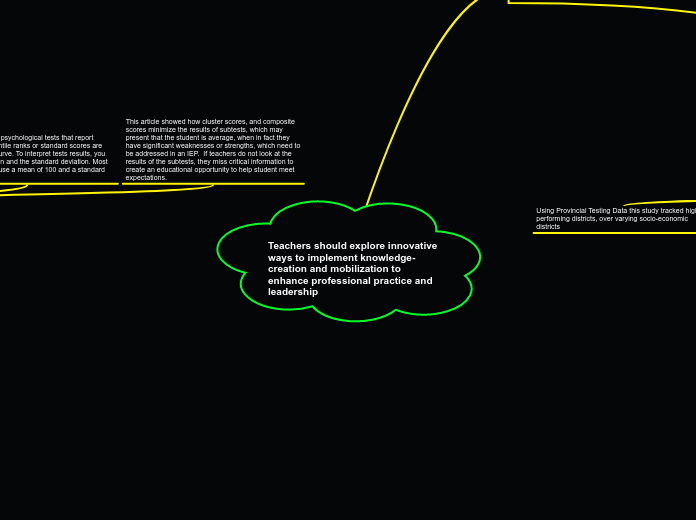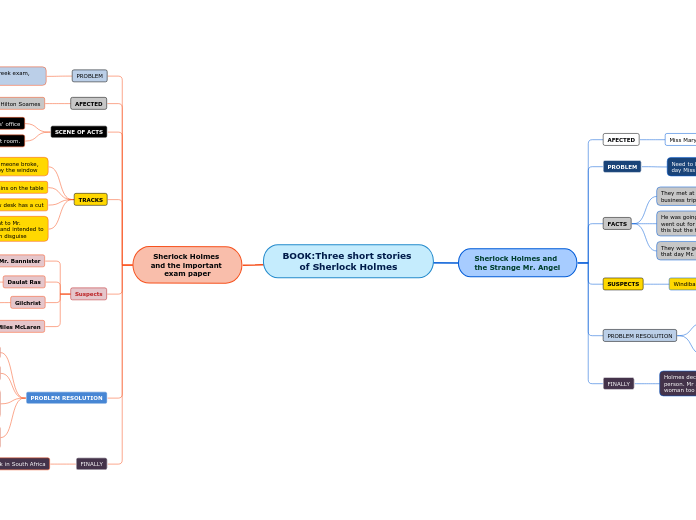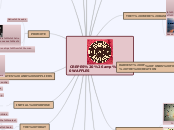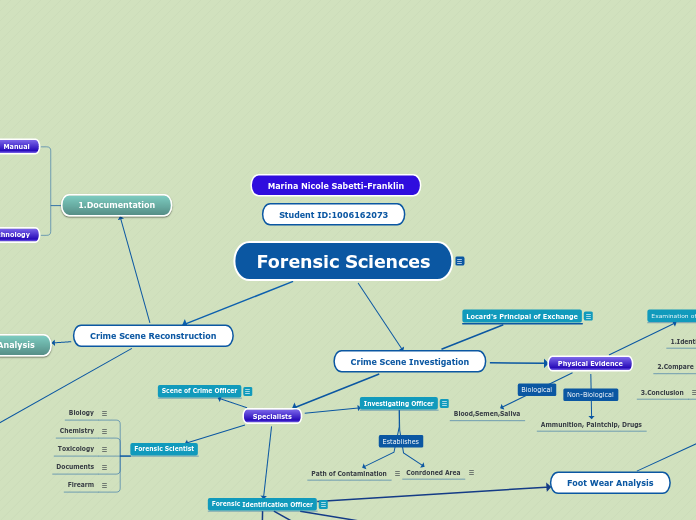What are norm-based assessments and what assessments does my board or school prefer?
Great learning from the Article Posted in Block 4
Subtopic
This article showed how cluster scores, and composite scores minimize the results of subtests, which may present that the student is average, when in fact they have significant weaknesses or strengths, which need to be addressed in an IEP. If teachers do not look at the results of the subtests, they miss critical information to create an educational opportunity to help student meet expectations.
All educational and psychological tests that report scores using percentile ranks or standard scores are based on the bell curve. To interpret tests results, you must know the mean and the standard deviation. Most standardized tests use a mean of 100 and a standard deviation of 15.
Tests administered to children fall into several categories: intellectual or cognitive tests; educational achievement tests; projective personality tests, questionnaires and surveys; speech and language tests; and neuropsychological tests.
Testlink from the Educational Testing Service (ETS) at http://www.ets.org/test_link/about to learn about many other tests.
Parents need “evidence” to support their claim of inappropriate support
Factors such as eligibility and intensity of special education support rely on “facts” of tests
collaboratively designing and integrating innovative pedagogical documentation and utilizing a variety of assessment processes to inform program planning, support learning and foster engagement
What assessments would I be expected to administer if I was a In-School Support Program Teacher?
Great Assessment Video UDL in Assessment POST COVID 19. I highly recommend watching
https://www.cast.org/our-work/projects/udl-perspective-assessment I’m watching this series of videos to learn about UDL perspective on Assessment.
I will have to investigate this further when I return in the fall. I need to make connections to the people who work in the Special Education field in my board. Currently the website is not a helpful search tool.
Teachers should explore innovative ways to implement knowledge-creation and mobilization to enhance professional practice and leadership
What is Knowledge-Creation and Mobilization?
Reid, S. (2014), "Knowledge influencers: leaders influencing knowledge creation and mobilization", Journal of Educational Administration, Vol. 52 No. 3, pp. 332-357. https://doi.org/10.1108/JEA-01-2013-0013
I am reading this to learn what knowledge creation and mobilization is. I think it is like instructional coaching co-learning about professional practice. (Praxis) Here are the findings,
“The findings of the study emphasized the importance of leaders supporting knowledge creation and mobilization processes through practices such as engaging school-based knowledge influencers and fostering cultures of trust and risk taking. The author defined knowledge influencers as leaders, formal or informal, who have access to knowledge creating groups at the local and system level. These leaders influenced knowledge mobilization at different levels of the district.”
An example of how Special Education Teachers were involved in knowledge-creation and mobilization:
“As part of their role, 82 percent of teacher leaders discussed various collaborative work sessions within and beyond the school. This was communicated as an important opportunity to gain and refine skills in assessing student products and analyzing student achievement data. For example, special education resource teachers were involved with “case management” meetings at the school level; groups of educators reviewed progress of students not progressing as expected and planned next steps of instruction.”
Looking deeper at the school level, and why some schools were performing well on EQAO, they found that:
“inquiry involved understanding why students were progressing in a particular fashion and how the actions and learning of educators can further support progress “We look at the class and talk about the kids and who we’re moving [forward in their achievement] and why,” “the student need becomes the teacher learning need,” and “we’re monitoring [students], looking at changing practice.” The important connections among the actions of analyzing data, reflecting on practices, and determining next steps were referred to by almost all educators (95 percent) “[y] Instruction is driven from the data.” The data were “pulled apart” to better understand the students’ progress over time. This reflective process allowed educators to determine the effectiveness or ineffectiveness of particular instructional strategies implemented in the classroom.”
This work goes on to talk about Organizational Learning, where the parameters are set by the Board, and Board/School data is looked at, reflected upon, challenging old ways of doing things, and everyone works toward a common school improvement goal. It also notes that:
One knowledge creation theory (Nonaka and Takeuchi, 1995) believes that “All individuals in an organization are holders of tacit knowledge and can be integral participants in the creation of knowledge. When groups of people collaborated together, these types of knowledge interacted with the creation of new knowledge as an outcome. This form of knowledge creation was also investigated through micro-communities of knowledge, small knowledge creating groups within the organization based on shared interests (Von Krogh et al., 2000). The challenge for organizations was sharing the knowledge created within micro-communities throughout the organization. As tacit and explicit knowledge interact through different levels, an amplifying and spiralling process of knowledge creation and mobilization takes place.”
1. Nonaka, I.A. and Takeuchi, H.A. (1995), The Knowledge-Creating Company: How Japanese Companies Create the Dynamics of Innovation, Oxford University Press, Oxford, and New York, NY. 2, Von Krogh, G., Ichijo, K. and Nonaka, I. (2000), Enabling Knowledge Creation: How to Unlock the Mystery of Tacit Knowledge and Release the Power of Innovation, Oxford University Press, New York, NY.
“However, organizational defensive routines are often present, making it difficult to challenge organizational processes and conceptual models, and that many organizational and personal forces resist the actions of challenging beliefs or viewpoints. Defensive routines emerge, resulting in accusations and blame of other individuals or circumstances during times of failure.”
These districts had Leaders who engaged or encouraged school-based “knowledge-influencers” and created a school culture of trust and risk-taking
I know that when a principal genuinely thanks you for your contribution, and values your input, and gives you the resources for your vision, then you as the worker feel very motivated and believe in the process of knowledge mobilization. Put it simply, I happily worked harder for principals who encouraged me and thanked me for my contributions as a knowledge-creator. I was the exact opposite, when I had an administrator who micromanaged my program, spoke to me like they were the expert in all subject areas, and did not support my mental health or program. An incredible experience, really.
I connect to this as I was/am a knowledge-influencer, I was trained by my board in a pilot project with OPHEA to be an instructional coach for generalist teachers who were new to teaching Health and Physical Education. It was a powerful experience for all of us. I have been invited by the coordinator of HPE to deliver workshops at the local conference. I have also been involved in Empowering Modern Learners - I ran a workshop on Structure of Observed Learning Outcomes (SOLO) as a Learning Model at our area conference. I also was involved in EdCamps at area PA days, where Learners could choose the workshop that they wanted to learn about, and knowledge-creators within the school were having a short session to impart the knowledge.
Using Provincial Testing Data this study tracked high performing districts, over varying socio-economic districts









